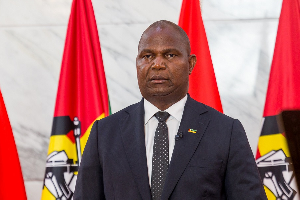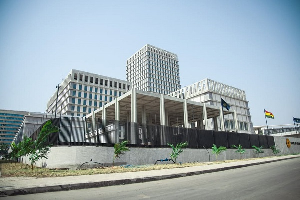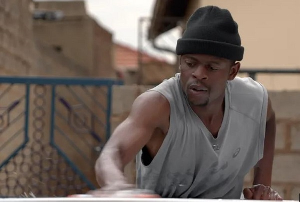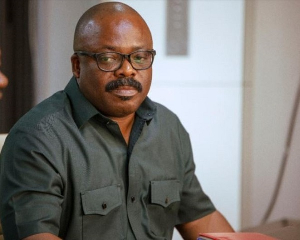A number of issues are in flux in our country Ghana these days. Some of the happenings last week got me thinking about this topic. First the President was in a church, on the Sunday before last, where he lamented that people only see the bad outcomes but are never prepared to acknowledge the things that were going well. This was followed on Tuesday by his deputy minister of information, who appeared with a litany of ‘achievements’ that include distribution of exercise books to schools, laptops to school pupils and teachers, enrolment figures having gone up and road projects completed. The deputy minister could not understand why in the face of all these ‘achievements’ doom and gloom merchants still abound.
Then on that same Monday the Opposition NPP closed its nominations for its flagbearer contest with seven aspirants vying for the position. Some made brief statements from which one can quote. One of them observed that Ghana must work again under his leadership; another was calling for one more change to secure victory for the NPP; and yet another extolled, in a campaign publication, his virtue in believing in traditional institutions.
Then came last Friday, when Alhaji Bature is reported to have pleaded with Ghanaians to pardon President Mahama because he became president prematurely. Apparently he was being groomed for the presidency in 2016, but for the death of President Mills. Lastly, on that same Friday, the middle class continued with its agitation for government to up its game and to address some 20 issues it presented on the 1st of July. The day was marked as a #RedFriday where everyone sympathetic to the cause wore red clothing of some description.
All these happenings boil down to one issue – LEADERSHIP. If I consider the floundering of those in political leadership, I cannot help but ask the question at the head of the article. Is it really the ‘be all’ and the ‘end all’ just to be called Mr. President? This is what it appears to be. Otherwise, why would some presidential aspirants be busy touting their ability to secure electoral victory based on their height, looks, eyes, and complexion but are talking less about what that would mean for the country? Why would some sidestep the need to first create wealth before spending to rather talk about giving out exercise books, sanitary pads and laptops? I have never paid any serious attention to what Alhaji Bature writes or says, but for once I agree with him that the President was not ready for the office.
One other observation I have made is that a lot of these people who clamour to be presidents only see it as a great position from which to wield power and influence and to have subordinates at their beck and call. Are they really learning from the experiences of others who are floundering at the moment? If you borrow close to $20 billion within a short period of time, and let us assume this was spent on social interventions, and yet people are complaining, should that not signal that perhaps you have framed the wrong problem and hence applied the wrong solution? Yet we are busy contracting more loans and are preparing even to issue another Eurobond this year. Leadership is really absent when reflection on experiences is absent.
So the question I have for some in the NPP, who have flooded the field, is: why would Ghanaians want to be led by you? This is a sobering question that should engage all of them. I bet President Mahama wishes he had asked himself this question in 2012. Leadership is no more a position or a rank to crave, it is a process.
Society has so changed that the era when we look up to ‘great men’ to have all the answers to all our problems is gone. Those acting out this leadership approach are deceiving us. They will not achieve anything much. The earlier our elected leaders realise this, the better for them and us.
People have alternative sources of obtaining information these days. People can read about what is happening in the country almost instantly. The IMF and World Bank Reports and reports by rating agencies that were not accessible some years ago, are all available within a few clicks on a computer. Thus people do not have to believe what the President and his economic team are telling them about how the economy is performing. It is almost insulting then when they continue to tell blatant lies when all reports by credible institutions say otherwise. In the process they only lose the legitimacy that comes from being trustworthy. Once you lose that credibility, nothing you say hits a chord with anybody and that is the bind President Mahama finds himself in.
As a President you need to be aware of the signs of the times (the context), you need to be aware of the different constituents in the country; you need to come to the job with certain qualities that will make you a leader of leaders; and you have to appoint a team of leaders. You have to know how to blend all four to able to succeed. A President who is prepared for the job knows the nature of problems confronting the nation and the nature of the solutions (note: the nature and not the solution).
Some problems are clearly defined and the solutions are known. These are mere technical problems that ought to be left to the technocrats to solve. Some problems are defined but the solutions are not known. These should be left to leaders with a technical team backup to solve. The most difficult to deal with are problems that cannot be clearly defined; only the symptoms are apparent and with no clear solutions. These are the problems that should engage the attention of the President and his cabinet. These are the ones that present threats to the country, and at the same time, opportunities if the President and his team of leaders handle them properly.
Presidential leadership should therefore not be seen as a status or rank. It is rather the use of power, authority and influence as a mobilising instrument for progress. Providing sanitary pads or exercise books or leading football supporters to Brazil should not be the preoccupation of ministers. Theirs should be using the positions they occupy to diagnose problems; to lead the search for solutions; to come out with suitable policies; and to draw all stakeholders into implementing the solutions to arrive at a higher level goal.
You usually hear people asking Ghanaians to help the President to achieve for the country. Are those making the calls aware of the President really detailing what our problems are, leading the search for solutions and mobilising the population to implement the solutions? I bet they just do not know but feel able to call on others to support unclear goals and even unclear solutions.
So unlike Mr Alan Kyeremanteng, who believes that when it comes to winning power, everything else is secondary, I say that knowing what to do with the power is much more important. Otherwise, as some people have already said, the King soon becomes naked and he loses all the goodwill.
Dr Yaw Ohemeng
Opinions of Wednesday, 16 July 2014
Columnist: Ohemeng, Yaw














